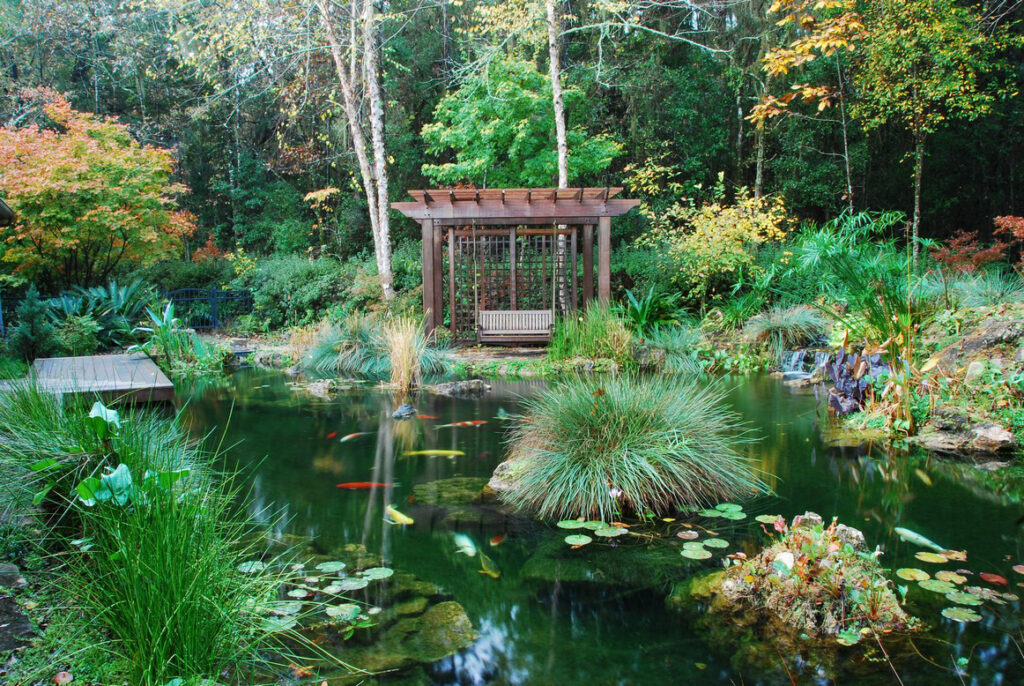
Water Quality Benefits
Bog filters provide numerous benefits for water quality in koi ponds and water gardens. Here’s a detailed look at how they enhance water quality:
1. Effective Biological Filtration
Ammonia Conversion: Bog filters utilize beneficial bacteria that convert toxic ammonia from fish waste into nitrites and then into less harmful nitrates through the nitrogen cycle. This process is crucial for maintaining a healthy aquatic environment.
2. Nutrient Uptake by Plants
Natural Nutrient Removal: The nitrates produced from the biological filtration process serve as nutrients for the aquatic and semi-aquatic plants growing in the bog filter. These plants absorb the nitrates, effectively removing them from the water column and preventing nutrient buildup that can lead to algae blooms.
3. Reduction of Algal Blooms
Balanced Nutrient Levels: By absorbing excess nutrients, bog filters help maintain balanced nutrient levels in the pond. This reduces the likelihood of algal blooms, which can deplete oxygen levels and harm fish and other aquatic life.
4. Improved Clarity and Aesthetics
Polished Water: A properly functioning bog filter can “polish” the water by settling out particulates and providing biological processes that enhance clarity. This results in crystal-clear water, allowing for better visibility of fish and plants.
5. Oxygenation of Water
Enhanced Oxygen Levels: The plants in the bog filter not only absorb nutrients but also contribute to oxygenation. As they photosynthesize, they release oxygen into the water, which is vital for the health of fish and beneficial bacteria.
6. Stabilization of pH Levels
Natural pH Buffering: The biological processes in a bog filter can help stabilize pH levels in the pond. This is important for the overall health of aquatic life, as extreme pH fluctuations can stress fish and plants.
7. Reduction of Harmful Pathogens
Natural Ecosystem Balance: The presence of beneficial bacteria and plants creates a balanced ecosystem that can help suppress harmful pathogens and parasites. This contributes to a healthier environment for fish and reduces the risk of disease outbreaks.
8. Lower Chemical Use
Eco-Friendly Approach: With effective biological filtration and nutrient management, bog filters reduce the need for chemical treatments, such as algaecides and water clarifiers. This not only benefits the environment but also promotes a healthier ecosystem.
9. Self-Sustaining System
Mimics Natural Wetlands: Bog filters create a self-sustaining cycle that mimics natural wetland ecosystems. This means that, once established, they require less human intervention to maintain water quality, making them a low-maintenance option.
Summary
In summary, bog filters significantly enhance water quality by providing effective biological filtration, nutrient uptake, and oxygenation, while reducing harmful algal blooms and the need for chemical treatments. They create a balanced and self-sustaining ecosystem that supports the health of fish and plants, resulting in a clearer, healthier pond environment.
